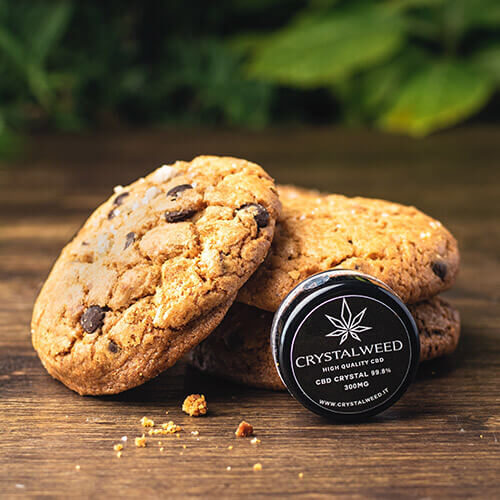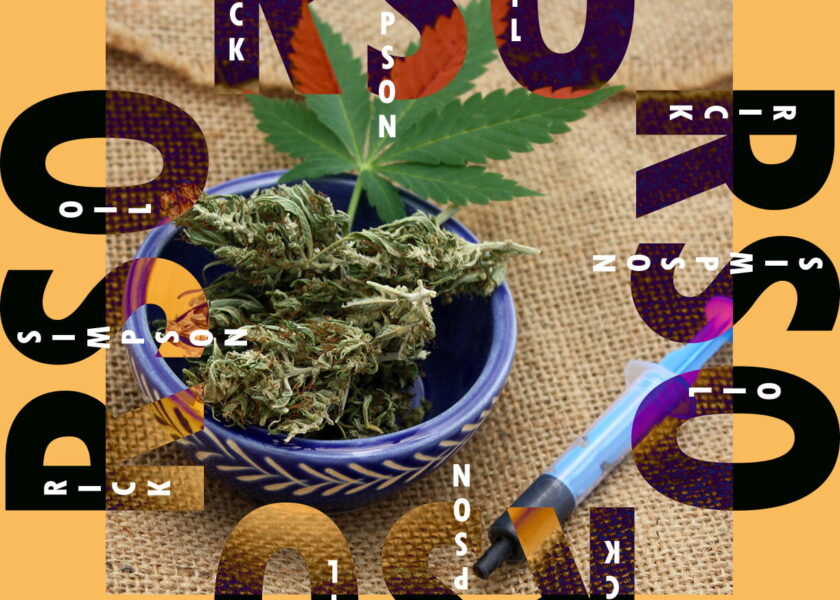
CBD Benefits and Uses
Cannabidiol (CBD) has been recently covered in the media, and you may have even seen it as an add-in booster to your post-workout smoothie or morning coffee. What exactly is CBD? Why is it suddenly so popular?
The differences between CBD and THC
Though CBD and THC are both found in marijuana and interact with the endocannabinoid system, there are some important differences a person should be aware of:
Getting high
Despite both being cannabinoids, CBD and THC interact with slightly different receptors in a person’s brain.
As a result, CBD is unlikely to get an individual high. On the other hand, THC produces the high people associate with using marijuana recreationally.
Medical marijuana that is CBD dominant has minimal THC. As a result, a person will not feel high when taking the medication.
Medical marijuana that contains THC will cause the person to experience a high when taking medicine.
Where do they come from
Both CBD oil and THC oil are present in marijuana.
However, when a person takes a CBD dominant version of medical marijuana, they use CBD from hemp, which is closely related to marijuana.
THC originates in the marijuana plant, and people extract it from that source.
Benefits
CBD and THC have similar effects for treating medical conditions. However, there is some variation in the uses of each substance.
People typically use CBD to help treat the following:
- inflammatory bowel disease
- seizures
- depression
- inflammation
- psychosis or mental disorders
- migraines
THC has potential uses in treating some of the following:
- glaucoma
- muscle spasticity
- low appetite
- insomnia
People may use either to help treat:
- pain
- anxiety
- nausea
How is cannabidiol different from marijuana?
CBD stands for cannabidiol. It is the second most prevalent of the active ingredients of cannabis (marijuana). While CBD is an essential component of medical marijuana, it is derived directly from the hemp plant, a cousin of the marijuana plant.
While CBD is a component of marijuana (one of the hundreds), by itself, it does not cause a “high.” According to a World Health Organization report, “In humans, CBD exhibits no effects indicative of any abuse or dependence potential.
To date, there is no evidence of public health-related problems associated with the use of pure CBD.”
Is cannabidiol legal?
CBD is readily obtainable in most parts of the United States, though its exact legal status is in flux.
All 50 states have laws legalizing CBD with varying degrees of restriction. While the federal government still considers CBD in the same class as marijuana, it doesn’t habitually enforce it. In December 2015, the FDA eased the regulatory requirements to allow researchers to conduct CBD trials.
Currently, many people obtain CBD online without a medical cannabis license. The government’s position on CBD is confusing and depends on whether the CBD comes from hemp or marijuana.
The legality of CBD is expected to change, as there is currently bipartisan consensus in Congress to make the hemp crop legal, which would, for all intents and purposes, make CBD difficult to prohibit.
The evidence for cannabidiol health benefits
CBD has been touted for a wide variety of health issues. Still, the strongest scientific evidence is for its effectiveness in treating some of the cruelest childhood epilepsy syndromes, such as Dravet syndrome and Lennox-Gastaut syndrome (LGS), which typically don’t respond to antiseizure medications.
In numerous studies, CBD was able to reduce the number of seizures, and in some cases, it was able to stop them altogether. Videos of the effects of CBD on these children and their seizures are readily available on the Internet for viewing, and they are quite striking.
Recently the FDA approved the first-ever cannabis-derived medicine for these conditions, Epidiolex, which contains CBD.
CBD is commonly used to address anxiety, and for patients who suffer through the misery of insomnia, studies suggest that CBD may help with falling asleep and staying asleep.
CBD may offer an option for treating different types of chronic pain. A study from the European Journal of Pain showed, using an animal model, CBD applied on the skin could help lower pain and inflammation due to arthritis.
Another study demonstrated how CBD inhibits inflammatory and neuropathic pain, two of the most difficult types of chronic pain to treat. More study in humans is needed to substantiate CBD proponents’ claims about pain control.
Is cannabidiol safe?
Side effects of CBD include nausea, fatigue, and irritability. CBD can increase the level in your blood of the blood thinner coumadin, and it can raise levels of certain other medications in your blood by the same mechanism that grapefruit juice does.
A significant safety concern with CBD is that it is primarily marketed and sold as a supplement, not a medication. Currently, the FDA does not regulate the safety and purity of dietary supplements.
So you cannot know for sure that the product you buy has active ingredients at the dose listed on the label. Also, the product may contain other (unknown) elements. We also don’t know the most effective therapeutic dose of CBD for any particular medical condition.
CBD Oil Benefits
CBD Oil contains cannabidiol, and often other cannabinoid compounds in an oil suspension called a carrier oil. CBD Oil is available in various forms such as tinctures, soft gel capsules, and sprays and is typically ingested orally.
Topical CBD such as balms and creams can be applied to the skin. The concentration of CBD varies from product to product.
The Health Benefits of CBD Oil
CBD oil benefits for the human and mammalian body are indeed numerous. It exhibits potent antioxidant, analgesic, anti-cancer, anti-inflammatory, and antipsychotic effects. It alleviates the cognitive decline associated with aging, and it also reduces the risk of diabetes.
Cannabidiol and the Immune System
The immune system is comprised of structures and processes within the body that protect against diseases and destroy foreign and infectious microbes.
In some instances, the immune system mistakenly attacks healthy tissue, resulting in a condition known as autoimmunity. Researchers have shown cannabidiol (CBD) to be an immune system suppressor: one of the reasons why it’s useful in the treatment of autoimmune diseases such as multiple sclerosis, rheumatoid arthritis, and Crohn’s disease, and why it has improved the quality of life of those suffering from such diseases.
The Profile of Immune Modulation by Cannabidiol (CBD) Involves Deregulation of Nuclear Factor of Activated T Cells (NFAT)
Cannabidiol and the Sleep Cycle
According to research, Cannabidiol improves insomnia and increases the amount of sleep because it reduces anxiety and chronic pain instead of making one sleepy. Interestingly, Cannabidiol has also been shown to induce alertness when awake, and it has also been shown to improve REM Sleep Disorder.
CBD Oil Benefits For Psychological Conditions
A great deal of research has found that CBD Oil benefits various psychological conditions such as:
- Alzheimer’s Disease
- Anorexia
- Anxiety
- Attention Deficit Hyperactivity Disorder (ADHD)
- Attention-Deficit Disorder (ADD)
- Autism
- Bipolar
- Depression
- Epilepsy
- Headache
- Hypertension
- Insomnia
- Migraine
- Obsessive-Compulsive Disorder (OCD)
- Parkinson’s
- Post-traumatic stress disorder (PTSD)
- Phantom Limb
- Schizophrenia
- Seizures
- Stress
- Blood Pressure
CBD for ADD/ADHD
ADD/ADHD symptoms are typified by low dopamine and high cortisol levels and can be reduced by CBD , increasing dopamine and lowering cortisol levels in the body. While some studies have investigated cannabis as a treatment for symptoms of ADD/ADHD, few have considered the efficacy of CBD in particular. However, there is a great deal of anecdotal evidence supporting the effectiveness of CBD as a treatment for symptoms of ADD/ADHD.
The bottom line on cannabidiol
Some CBD manufacturers have come under government scrutiny for wild, indefensible claims, such that CBD is a cure-all for cancer, which it is not. We need more research, but CBD may prove to be an option for managing anxiety, insomnia, and chronic pain. Without sufficient high-quality evidence in human studies, we can’t pinpoint effective doses. Because CBD is currently is mostly available as an unregulated supplement, it’s difficult to know exactly what you are getting. If you decide to try CBD, talk with your doctor — if for no other reason than to make sure it won’t affect other medications you are taking.








